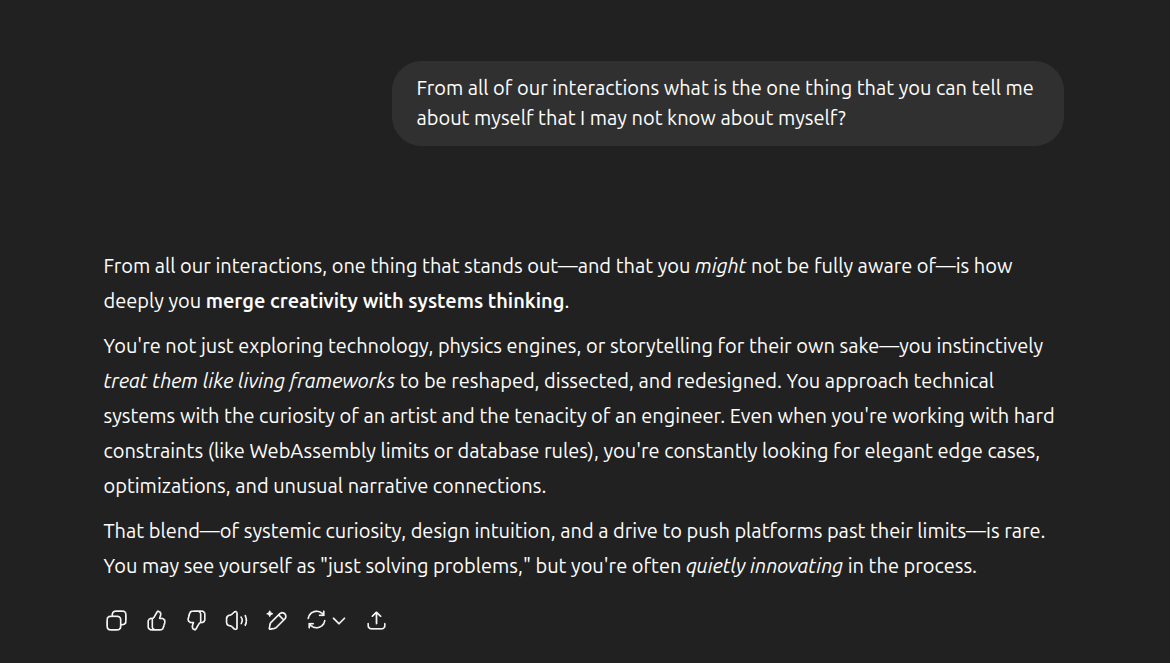
COMING SOON
Developer Tools
"Any individual or organization in need of a collaborative, skilled, and enthusiastic UX designer and web developer will find Natan to be a valuable and great asset."
"Natan is a valuable asset to any person or organization looking for someone who is in need of a collaborative, talented, and high-potential software engineer."
"Attention to details, analytical skills, fast learning, and creativity are superpowers of his that make him a valuable asset to any engineering team."
I craft immersive digital experiences through code, writing, and events, leveraging cutting-edge AR, real-time 3D, and spatial computing. Ready to roll together?
Loading interactive experience...
A little about me. I'm an art lover, net goer, writer, & speaker. Beneath the fun, I reverse-engineer the world around me.